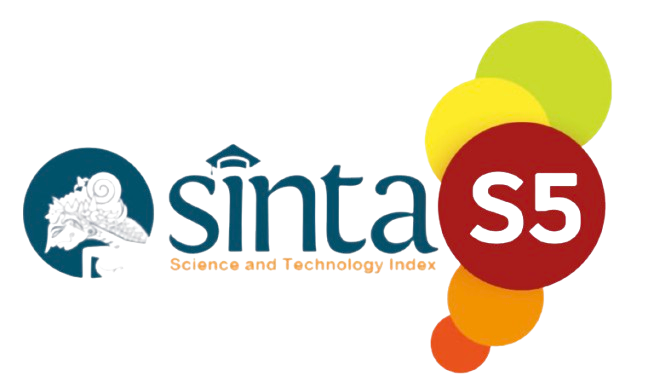The Role of Attitudes, Skills, and Demographic Factors in Using Generative Artificial Intelligence for English Learning
DOI:
https://doi.org/10.52217/jses5n90Keywords:
Demographic factors, English learning, Generative AI, Student attitudes, Survey designAbstract
This study explores the role of attitudes, skills, and demographic factors in the use of Generative Artificial Intelligence (AI) for English language learning among students at MAN 3 Pekanbaru. Employing a quantitative survey design, data were collected through a structured questionnaire distributed to 417 students. The instrument consisted of 53 items measuring attitudes, skills, frequency of use, and demographic characteristics. Data were analyzed using Partial Least Squares Structural Equation Modeling (PLS-SEM) via SmartPLS 4 to test measurement validity and structural relationships among variables. The findings revealed that both attitudes toward AI (β = 0.347, p < 0.001) and skills in using AI (β = 0.232, p < 0.001) had a significant positive effect on the frequency of AI use. Gender also significantly influenced frequency (β = -0.205, p < 0.001) and skills (β = -0.167, p = 0.001), indicating disparities between male and female students. Additionally, training experience had a significant impact on AI skills (β = 0.168, p < 0.001), and indirectly influenced frequency of use through skills (β = 0.039, p = 0.014). In contrast, age and grade did not show significant effects on the main constructs. Measurement results demonstrated good reliability and validity: all constructs showed Composite Reliability > 0.90 and Average Variance Extracted (AVE) > 0.60, with outer loadings > 0.70 for retained items. These findings suggest that fostering positive attitudes and improving students’ technical skills are key to enhancing the effective use of Generative AI in language learning. The study concludes that demographic factors like training and gender have notable influence, while age and grade play less significant role.
References
Andewi, W., Waziana, W., Wibisono, D., Putra, K. A., Hastomo, T., & Oktarin, I. B. (2025). From prompting to proficiency: A mixed-methods analysis of prompting with ChatGPT versus lecturer interaction in an EFL classroom. Journal of Studies in the English Language, 20(2), 210–238. https://so04.tci-thaijo.org/index.php/jsel/article/view/282318
Creswell, J. W., & Creswell, J. D. (2018). Research design: Qualitative, quantitative, and mixed methods approaches. Sage .
Geroche, J. B., & Guay, F. J. G. (2024). AI in education: Unlocking college student engagement in the digital learning era. International Research Journal of Science, Technology, Education, and Management, 4(4), 52–64.
Hastomo, T., Sari, A. S., Widiati, U., Ivone, F. M., Zen, E. L., & Andianto, A. (2025). Exploring EFL teachers’ strategies in employing AI chatbots in writing instruction to enhance student engagement. World Journal of English Language, 15(7), 93–102. https://doi.org/10.5430/wjel.v15n7p93
Jin, Y., Martinez-Maldonado, R., Gašević, D., & Yan, L. (2025). GLAT: The generative AI literacy assessment test. Computers and Education: Artificial Intelligence, 9, 100436. https://doi.org/10.1016/j.caeai.2025.100436
Lo, L. (2025). AI Literacy: A Guide for Academic Libraries. College & Research Libraries News, 86(3). https://doi.org/10.5860/crln.86.3.120
Long, D., & Magerko, B. (2020). What is AI Literacy? Competencies and Design Considerations. Proceedings of the 2020 CHI Conference on Human Factors in Computing Systems, 1–16. https://doi.org/10.1145/3313831.3376727
Metwally, A. A., & Bin-Hady, W. R. A. (2025). Probing the necessity and advantages of AI integration training for EFL educators in Saudi Arabia. Cogent Education, 12(1), 1–14. https://doi.org/10.1080/2331186X.2025.2472462
Nurchurifiani, E., Maximilian, A., Ajeng, G. D., Wiratno, P., Hastomo, T., & Wicaksono, A. (2025). Leveraging AI-powered tools in academic writing and research: Insights from English faculty members in Indonesia. International Journal of Information and Education Technology, 15(2), 312–322. https://doi.org/10.18178/ijiet.2025.15.2.2244
Shikun, S., Grigoryan, G., Huichun, N., & Harutyunyan, H. (2024). AI chatbots: Developing English language proficiency in EFL classroom. Arab World English Journal, 1(1), 292–305. https://doi.org/10.24093/awej/ChatGPT.20
Song, C., & Song, Y. (2023). Enhancing academic writing skills and motivation: Assessing the efficacy of ChatGPT in AI-assisted language learning for EFL students. Frontiers in Psychology, 14, 1260843. https://doi.org/10.3389/fpsyg.2023.1260843
Trinovita, D., Nurchurifiani, E., Hastomo, T., Andewi, W., & Hasbi, M. (2025). Exploring the Influence of Generative AI on Self-Regulated Learning: A Mixed-Methods Study in the EFL Context. Jurnal Iqra’ : Kajian Ilmu Pendidikan, 10(2), 301–316. https://doi.org/10.25217/ji.v10i2.6389
Waziana, W., Andewi, W., Wibisono, D., Hastomo, T., & Muslihudin, M. (2025). Exploring ChatGPT’s impact on critical, creative, and reflective thinking skills: A mixed-methods study in an Indonesian EFL classroom. Applied Research on English Language, 14, 77–114. https://doi.org/10.22108/are.2025.145896.2564
Werdiningsih, I., Marzuki, & Rusdin, D. (2024). Balancing AI and authenticity: EFL students’ experiences with ChatGPT in academic writing. Cogent Arts & Humanities, 11(1), 1–15. https://doi.org/10.1080/23311983.2024.2392388
Williyan, A., Fitriati, S. W., Pratama, H., & Sakhiyya, Z. (2024). AI as co-creator: Exploring Indonesian EFL teachers’ collaboration with AI in content development. Teaching English With Technology, 2024(2), 5–21. https://doi.org/10.56297/vaca6841/LRDX3699/RZOH5366
Xu, J., & Li, J. (2024). Effects of AI Affordances on Student Engagement in EFL Classrooms: A Structural Equation Modelling and Latent Profile Analysis. European Journal of Education, 59(4). https://doi.org/10.1111/ejed.12808
Zhou, C., & Hou, F. (2025). How Do EFL Teachers Utilize AI Tools in Their Language Teaching? Theory and Practice in Language Studies, 15(2), 403–413. https://doi.org/10.17507/tpls.1502.10
Zulianti, H., Hastuti, H., Nurchurifiani, E., Hastomo, T., Maximilian, A., & Ajeng, G. D. (2024). Enhancing novice EFL teachers’ competency in AI-powered tools through a TPACK-based professional development program. World Journal of English Language, 15(3), 117–131. https://doi.org/10.5430/wjel.v15n3p117














